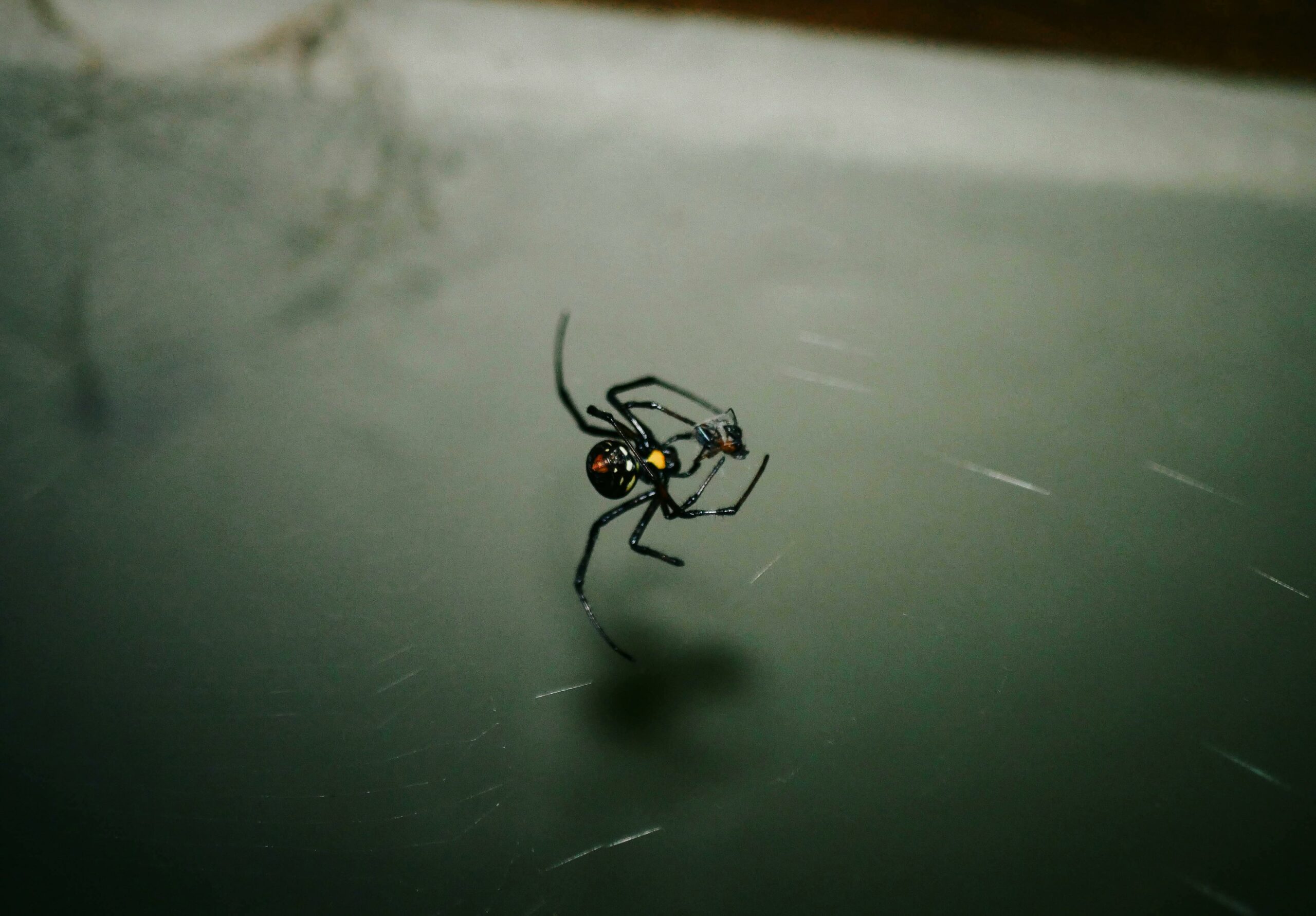Did you know that a black widow spider bite can be 15 times more potent than a rattlesnake’s venom? The black widow spider is a notorious arachnid, often feared for its venomous bite. Understanding the dangers of black widow bites and knowing when to seek professional help is crucial for your safety and peace of mind.
Understanding Black Widow Spiders
- Identification: Black widow spiders are easily identifiable by their shiny, black bodies and distinctive red hourglass marking on the underside of their abdomens. Females are typically about 1.5 inches long, including the leg span, while males are smaller and less venomous.
- Habitat and Behavior: Black widows prefer dark, secluded areas. They are commonly found in:
- Woodpiles
- Sheds
- Garages
- Under outdoor furniture
- Basements
These spiders are nocturnal and typically non-aggressive, biting only when threatened.
Symptoms of a Black Widow Bite
Initial Bite Sensation
A black widow bite often feels like a sharp pinprick. The initial pain is usually minimal, but the venom quickly begins to affect the body.
Early Symptoms
Within the first few hours, you may experience:
- Redness and swelling around the bite
- Muscle cramps near the bite site
- Nausea or vomiting
- Sweating
Severe Symptoms
More severe symptoms can develop within a few hours to a day, including:
- Severe muscle pain and cramping
- Abdominal pain resembling appendicitis
- Difficulty breathing
- Elevated heart rate and blood pressure
Differentiating between mild and severe symptoms is essential, as the latter require immediate medical attention.
Are Black Widow Bites Deadly?
In the past, black widow bites were considered highly dangerous. However, current medical knowledge shows that fatalities are rare, especially with prompt treatment. According to recent statistics, severe reactions occur in less than 1% of cases, and fatalities are extremely uncommon, thanks to advances in medical care and antivenoms.
First Aid for Black Widow Bites
If you are bitten by a black widow spider, take these first aid steps immediately:
- Clean the Bite: Wash the bite area with soap and water to prevent infection.
- Apply Ice: Use an ice pack to reduce swelling and numb the pain.
- Elevate the Area: Keep the bite area elevated to minimize swelling.
- Take Pain Relievers: Over-the-counter pain medications can help alleviate discomfort.
- Stay Calm: Try to remain calm and limit movement to prevent the venom from spreading.
Avoid:
- Applying a tourniquet
- Sucking out the venom
- Cutting the bite area
When to Seek Medical Help
Immediate Indicators
Seek medical attention immediately if you experience:
- Severe muscle cramps or pain
- Difficulty breathing
- Chest pain
- Rapid heartbeat
- Severe abdominal pain
Long-Term Effect
If left untreated, a black widow bite can lead to prolonged muscle pain and spasms, fatigue, and in rare cases, secondary infections. Prompt medical treatment is crucial to prevent these long-term effects.
Conclusion
Black widow bites, while painful and potentially serious, are rarely fatal with proper treatment. Recognizing the symptoms and knowing when to seek medical help are key to managing a bite effectively. If you suspect black widow spiders in your home, professional pest control is essential to ensure your safety and peace of mind.
For expert assistance with black widow spider infestations, Contact Pest Control Consultants (PCC) today. Our professionals are equipped to handle your pest problems swiftly and safely.
